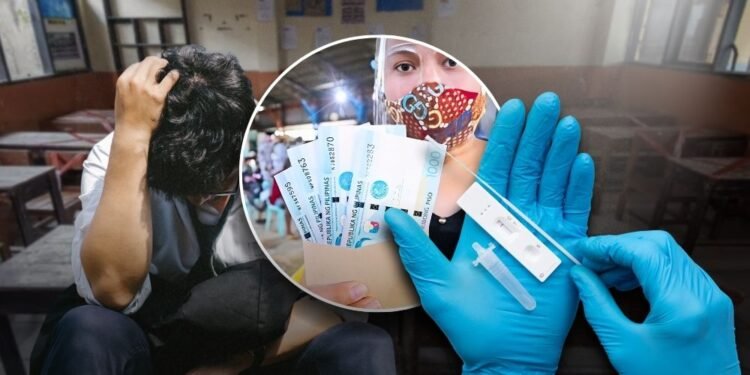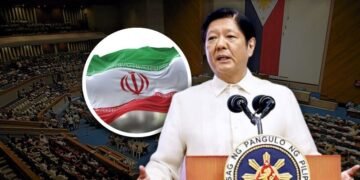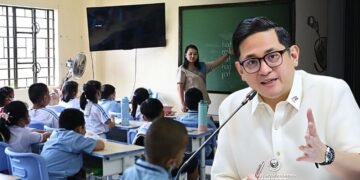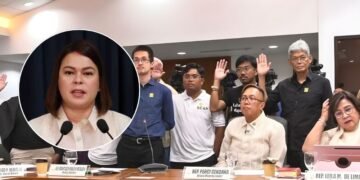More than four years since COVID-19 first brought the world to a halt, the Philippines continues to live with the aftermath of decisions made in panic. Policies implemented in the name of public health were often built on uncertain science, poor data, and in some cases, misleading assumptions.
The crisis demanded urgency — but it also demanded honesty. We got very little of the latter.
As the dust settles, we now face a hard but necessary question: were we misled?
In early 2022, the Department of Transportation issued a directive banning unvaccinated individuals from using public transportation in Metro Manila. The rationale was clear: limit transmission, protect the population.
But even at the time, mounting global evidence showed that vaccination did not fully prevent the spread of the virus, particularly with newer variants. The policy did not account for individual risk profiles or medical exemptions.
It punished workers, commuters, and the poor — many of whom were already marginalized by pandemic-related job losses. Instead of building trust, the state resorted to coercion, using access to basic mobility as leverage.
Face shields were also mandated nationwide — a policy unique to the Philippines. From supermarkets to buses, Filipinos wore plastic visors on top of masks, even in outdoor spaces.
Yet there was never clear evidence that this provided community-level protection. No international health body recommended such practice for the general public. It became a visual spectacle, enforced by guards and local officials, but with limited scientific backing.
On education, the Philippines endured the longest school closure in the world, according to UNESCO. For over two years, children were confined to modular learning or unstable online setups.
Other countries reopened schools with protocols; here, students waited. The result? Widespread learning loss, increased dropout rates, and long-term damage to a generation’s future — especially among low-income families. Despite this, no full-scale assessment has been launched to measure the fallout.
The promise of ayuda — emergency cash aid — offered hope but proved inconsistent in practice. Distribution was marred by delays and confusion. While funds were allocated, not all were disbursed on time.
Later audit findings confirmed logistical challenges and gaps in execution. For many Filipinos who waited in long lines under the heat for hours, that promise felt like another broken one.
Then there was the vaccine messaging. Filipinos were told the shots were over 90% effective at preventing infection — but with time and the rise of new variants, real-world effectiveness plummeted.
Protection from infection faded within months. Worse, authorities did not revise their messaging fast enough, and mandates continued even when the science had shifted.
Young adults, especially those vaccinated in 2020–2021, have reported rare but concerning health events. While overall vaccine safety remains supported by regulators, ongoing monitoring is essential, particularly with questions surrounding long-term effects.
The framing of risk was also skewed. Global and local data revealed that COVID-19’s most severe effects were concentrated among older adults and those with pre-existing conditions such as obesity.
Yet restrictions were applied equally, even to the young and healthy. Children, who had extremely low risk, were still required to get vaccinated in some areas — despite lingering questions about benefit-to-risk ratios for that age group.
Back in 2020, even suggesting that the virus may have originated from the Wuhan Institute of Virology was branded racist or conspiratorial. Public figures were silenced, and media platforms suppressed the theory.
Yet years later, multiple intelligence agencies acknowledge it as a legitimate possibility — a reminder that early dismissal of inconvenient questions came at the cost of scientific inquiry.
There were baffling choices too: beaches were closed, despite evidence that open-air environments posed minimal risk. Outdoor exercise and movement were discouraged at a time when sunlight and physical activity could have helped both physical and mental health.
Instead, lockdowns confined families in cramped spaces, fostering stress and sedentary behavior.
Throughout all of this, few officials revisited or admitted to missteps. Some policies were rolled back quietly, without reflection or accountability. But the impact remains: education loss, mental health decline, economic strain, and a deepened mistrust in public institutions.
What the public needed was guidance rooted in humility, transparency, and adaptability. What it received was rigid enforcement, uneven communication, and a refusal to correct course — even when the facts changed.
What we needed was leadership anchored in truth, not fear.
But what we got were blanket mandates, moving goalposts, and a culture that punished questions instead of welcoming them. The cost wasn’t just economic or educational — it was moral. Trust was traded for control. Nuance was lost to politics.
We can’t rewrite what happened, but we owe it to the next generation to confront it — fully and fearlessly. The real virus was not just COVID. It was the refusal to admit when we were wrong.












